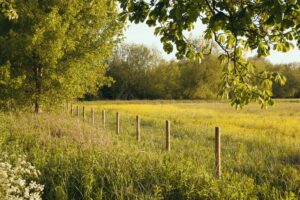Landscape solutions are key to reaching net-zero
Wider-reaching landscape solutions are needed to reach net-zero, according to a new report.
In the report – titled ‘Landscape Decisions to Meet Net-Zero Carbon’ the interdisciplinary team of researchers highlighted the need for wider-ranging solutions to create a more sustainable future.
Recommendations include a greater focus on locally-devolved decisions in land-use solutions, as a one-size-fits-all approach to net-zero landscape management could be damaging in certain environments.
As well as studying the physical impact of landscape decisions, these should be taken within the full context of the social consequences of these changes; for example, in the case of sudden large-scale changes to farming.

Dr. Eirini Saratsi, a human geography researcher at the University of Reading and co-author of the report, said: ‘Swift action towards achieving net-zero carbon targets is now imperative. We are at the start of a long run, and landscape decisions that are inclusive and draw upon a range of expertise and perspectives are the only way forward.
‘The report emphasises that there is never a definitive and objective answer when considering net-zero carbon targets. Therefore, solutions should be guided by ecological, physical, social and ethical factors and most importantly, be realistic, place-specific, time-enduring and time-responsive.’
The group do, however, recognise that ‘swift action is essential, otherwise, we head deeper towards an inability to reach net-zero carbon targets, contribute to biodiversity collapse and, promote societal disengagement with landscapes.’
Dr Beth Cole, Senior Research Fellow for the Landscape Decisions Programme, based at the University of Leicester, and lead author for the report, said: ‘To reach the net zero goals we need to make some challenging decisions about the way we use, manage, and interact with landscapes in the UK.
‘These landscape decisions are dependent upon many factors including the environmental characteristics, and the geographic location of the land, but in this report, we also consider the wider social framing of these decisions and call for inclusive, place-specific net zero practices within landscapes that support both biodiversity and people.
‘Collaborating across disciplines this group of researchers together make a team that is greater than the sum of its parts and who have broken down some of the silos this urgent issue is normally approached from.’












